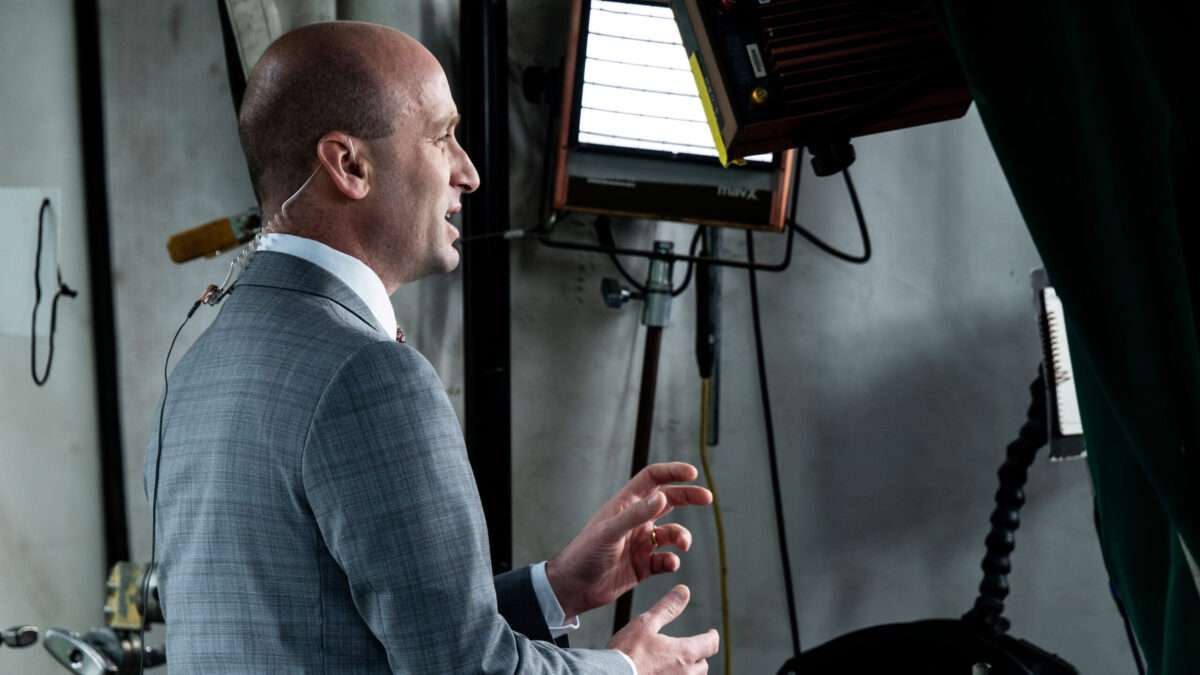This week, President Donald Trump issued an order he says will bring down Americans' prescription drug prices. The order will likely have little effect, but it's a perfect example of the government price controls that Trump and members of his administration once compared to socialism and fascism.
On Monday, Trump issued an executive order directing the secretary of health and human services within 30 days to "communicate most-favored-nation price targets to pharmaceutical manufacturers to bring prices for American patients in line with comparably developed nations." Most favored nation (MFN) status means a country is treated the same in a negotiation as whoever is getting the best deal. If enacted across the board, Trump's order would mean pharmaceutical companies must sell drugs to Americans at the lowest prices they were offering anybody else in the world.
"Trump does not in any way suggest those price targets would apply only to the prices the government pays for medicines," writes Michael F. Cannon, director of health policy studies at the Cato Institute.
The order also directs agencies to take action against manufacturers that don't comply. "If necessary, we'll investigate the drug companies, and we'll, in particular, investigate the countries that are doing this," Trump said on Monday.
In a post on Truth Social over the weekend, Trump said that as a result of the order, "Prescription Drug and Pharmaceutical prices will be REDUCED, almost immediately, by 30% to 80%." On Monday, he said it would bring down costs "60, 70, 80, 90 percent, but actually more than that if you think about it…mathematically." The order complains that "drug manufacturers deeply discount their products to access foreign markets, and subsidize that decrease through enormously high prices in the United States."
Americans do pay significantly more for prescription drugs than people in other developed nations, but the reasons for that are more complicated than Trump suggests.
"There are many good reasons why we should pay more for earlier access to new medications than our trading partners," wrote Darius Lakdawalla and Dana Goldman of the University of Southern California's Schaeffer Institute for Public Policy & Government Service. "As the world's largest market for pharmaceuticals, America finds itself in the unique position of accruing the lion's share of the benefits from new medicines. We often recoup these additional costs in the form of longer and healthier lives."
Pharmaceutical companies say the price imbalance is due to the cost of bringing a new drug to market in the U.S., which typically runs into billions of dollars.
Trump's proposal "falls short on several fronts," Lakdawalla and Goldman wrote. Drug companies could simply hike overseas prices but offer rebates, which many foreign laws require to be confidential. Otherwise, "facing a choice between deep cuts in their U.S. pricing or the loss of weakly profitable overseas markets," the companies may simply exit foreign markets altogether, "leaving U.S. consumers with the same prices, pharmaceutical manufacturers with lower profits, and future generations with less innovation."
Besides, the order would impose the same sort of coercive government policies Trump and his allies once rightly decried as authoritarian.
In August 2024, then–Vice President Kamala Harris announced that as president, she would support a federal ban on grocery price gouging, which she blamed for inflation.
"Commies gonna commie. The only thing price controls deliver is shortages and famine," Stephen Miller, now a White House adviser, said at the time in a post on X. In a separate post, he called price controls "a Marxist policy imposed by leftist regimes whose policies have triggered radical inflation. It leads to food and medicine shortages, bread lines, a worse inflation spiral, and the destruction of the currency."
"After causing catastrophic inflation, Comrade Kamala announced that she wants to institute socialist price controls," Trump told a campaign rally at the time. "This is Communist; this is Marxist; this is fascist."
But Trump is now calling for price controls on prescription drugs, doing exactly what he warned would happen if Harris had won. Asked how the president's plan differed from Harris' proposal, a White House official told National Review's Audrey Fahlberg, "What we're doing here is kind of fixing the market and just allowing market forces to operate in a way they're supposed to to deliver price relief for the American people."
But contrary to that official's claim, price controls are completely antithetical to "allowing market forces to operate." In fact, introducing more "market forces" into the health care industry would be a welcome change. Medicare and Medicaid account for 45 percent of all health care spending in the United States.
Instead, the president hopes to introduce even more government into health care.
The post Trump Called Price Controls 'Communist.' Now He's Ordering Them for Prescription Drugs. appeared first on Reason.com.













 Bengali (Bangladesh) ·
Bengali (Bangladesh) ·  English (United States) ·
English (United States) ·